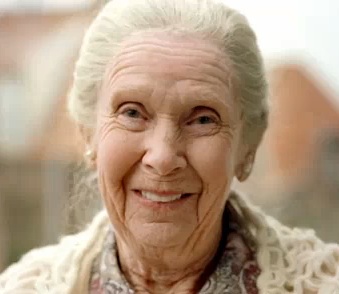
[The third in a series of little essays written half-a-lifetime ago.]
Anna is out of intensive care now, and I guess that's why I'm saying this. Because it strikes me--now that she has wrestled through a fight with her heart--it strikes me that we are far too good at eulogies. Nice things are always easy to say after the funeral. But today Anna came out of intensive care.
Anna is an organist in our church--self-taught for the most part--and a Sunday school teacher for three or four generations probably. When I was a boy we feared Anna because her grim face wore no emotion; her lips were locked together in a twist that was neither smile nor frown. We read it as perpetual disgust.
Sunday school programs brought out the worst in her. A hundred kids with lit fuses would shoot around the church sanctuary during practice the night before. "You fourth graders, act your age!" She would always snap at us. When she'd turn to the fifth graders, someone would mimic her for sure. Years later I discovered that Anna created those annual programs.
Anna never married. In a church of families, even kids don't quite know how to take women who don't marry. They're different, and a boy starts recognizing such things about the same time he starts reading the script writing carved into the Communion table at the front of the church he's attended for ten years. Suddenly, it's just there. Fourth-grade boys just figured a woman like Anna-sour Anna-couldn't get a man. Meanwhile, another Christmas program would come and go.
Halfway through adolescent rebellion, I thought Anna was an icon of the staid, traditional, immovable church of my youth. Fashions arrived and left, but Anna's hair looked forever the same, as if she'd surrendered to being out of time. I swore that the older she grew the slower she played the organ, until even the bouncy hymns poked along like the old alms. And always you would see the expressionless face up there, lighted by the soft glow of organ light. She chewed gum, not vigorously but quickly, nervously, when she played.
Years have passed since then. Today the church pays a music director to order a Christmas show from some slick Christian catalog out of Texas, but Anna is still teaching Sunday school, and now she has my own three-year-old boy. No one else her age teaches, because kids have a way of forcing early retirements, just as they always did. But there is a smile on Anna's face whenever we drop our son off with her for Sunday school. It's a smile unlike anything we ever saw before on her face, a smile that surprised me at first. And Anna has a permanent now, her curly gray hair curled up tight around her head like any of a dozen other women in church.
Time fills in gaps the way dawn colors a lakeshore landscape. Some things I know now about Anna. I know now that Anna cared for her parents until the day each of them died. I know now that her father was no gentle man to live with-blustery, hardheaded, stubborn as the toughest Hollander. I know now that when he was gone, every Sunday she dressed her mother, set her in the wheelchair, and pushed the old woman to church, even when she knew her mother understood little of the sermon. I know now that giving her life to them was a thankless, blessed job that might have turned anyone's face into something grim, something less than radiant.
I know now that the woman who never married regularly plays grandmother to two little blond-haired boys no older than my own son, two little boys her niece was left alone with when their father ran off with another.
Why does she smile that way today, twenty years after a class of fourth-grade boys decided she was much too owly to be a good teacher? Why does my son love her today? Why does he curl around my leg and turn away from her when she talks to him, as if he's embarrassed to have all of her attention himself? Why does Anna smile?
Maybe it's because life is easier for her now, later on in her years. Maybe the privileged burden of her parents' care is there behind her, settled in the pages of her mind like yellowed photographs. Maybe the anxiety of being alone has settled into a firm assurance that all things have worked together for good. Maybe playing grandmother has swelled the limits of her tolerance. Maybe the smile is simply the inherent reward of many years of Christmas programs interspersed annually in a lifetime of quiet selflessness.
Four hundred years ago we reformed the church and stopped canonization, stopped making saints. Maybe it's a shame. Today we don't know how to revere those who give themselves, all of themselves, through us to God. We let them pass on too easily, and we don't elevate them like heroes. After all, what was Abraham to David but a symbol of belief and courage, of faith and promise.
So this is for you, Anna. And this is for me. And this is for our son. And this is for our Lord.
I'm happy you're out of intensive care, and so is my son.
1 comment:
Back in the old church, about 60 years ago, I ran down the stairs to the church basement to get a good seat in my Sunday School room. I got caught in a speed trap by the dreaded, Anna! She got a hold of my ear and about twisted it off! When she was done it [my ear] was so hot it burned for the rest of the day. She ended up on the bottom of my least favorite list.
May see rest in peace...
Post a Comment